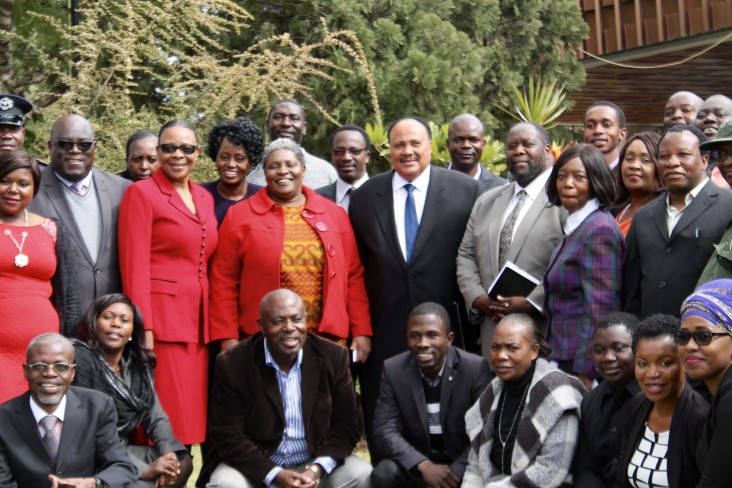Speeches Shim

With a rich democratic history, Zambia is well-placed to build citizen-responsive systems of governance that advance the nation’s development priorities and reduce donor dependency. Through USAID’s support to the Human Rights Commission, the United States works with Zambia to combat corruption, strengthen government systems, protect human rights, and promote productive civic engagement. USAID/Zambia assistance promotes legal and procedural reforms that strengthen the case-management capacity of the Commission.
INSTITUTIONAL STRENGTHENING OF THE HUMAN RIGHTS COMMISSION
Strong and independent institutions advance democratic practices, protect the rights of citizens, reduce impunity, and improve host-country resilience. Local institutions, such as Zambia’s Human Rights Commission (HRC), play a key role in maintaining respect for human rights, including freedom of speech and assembly.
In partnership with USAID/Zambia, the HRC is strengthening its institutional capacity, and promoting non-discriminatory implementation of the Public Order Act (POA), a law enacted in 1955 to maintain the rule of law but has been used to limit rights to freedom of expression, peaceful assembly and association. This support also aims at strengthening government accountability and improving the Commission’s case-management systems.
The HRC is achieving this through improved documentation, management and referral of human rights cases, holding a series of public discussions, and sensitizing citizens and government institutions on their rights and responsibilities.
|
USAID/Zambia assistance enabled the HRC to convene various stakeholders, including university students, political parties, law enforcement, civil society, and human rights activists during tightly-contested national elections to discuss and agree on appropriate implementation of the POA. These national discussions contributed to the government taking public steps to review and replace the POA, a process that is still ongoing.
With U.S assistance, the HRC improves internal processes by:
- Developing tools and manuals to guide operations;
-
Increasing engagement with interest groups on human rights issues;
-
Establishing a toll-free hotline and a SMS facility which received hundreds of calls since their commissioning; and
-
Conducting regional educational tours to understand best practices in United Nations-led human rights reviews.
JOURNEY TO SELF-RELIANCE
USAID believes every person, every community, and every country wants to be empowered to lead their own future. We support self-reliance by walking alongside our friends on their development journey, as evolving but enduring partners. As partners on this journey, we are empowering host country governments and our partners to achieve locally-sustained results, helping countries mobilize public and private revenues, strengthening local capacities, and accelerating enterprise-driven development. This approach fosters stable, resilient, and prosperous countries that are more self-reliant, and prioritizes enduring partnerships.

Comment
Make a general inquiry or suggest an improvement.